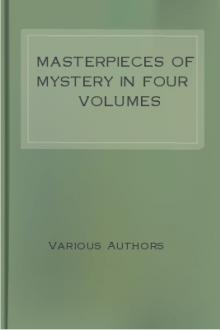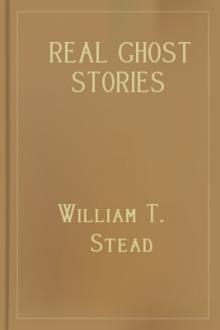Varney the Vampire; Or, the Feast of Blood by Prest and Rymer (ereader iphone .txt) 📗

- Author: Prest and Rymer
Book online «Varney the Vampire; Or, the Feast of Blood by Prest and Rymer (ereader iphone .txt) 📗». Author Prest and Rymer
"Oh, capital!" said everybody.
"Then you all agree to that?"
"Yes, yes."
"Very good; that's the only way to nick him. Now, we'll pretend to give it up; let's all of us talk loud about going home."
They did all talk loud about going home; they swore that it was not worth the trouble of catching him, that they gave it up as a bad job; that he might go to the deuce in any way he liked, for all they cared; and then they all walked off in a body, when, the man who had made the suggestion, suddenly cried,—
"Hilloa! hilloa!—stop! stop! you know one of us is to wait?"
"Oh, ay; yes, yes, yes!" said everybody, and still they moved on.
"But really, you know, what's the use of this? who's to wait?"
That was, indeed, a knotty question, which induced a serious consultation, ending in their all, with one accord, pitching upon the author of the suggestion, as by far the best person to hide in the ruins and catch the vampyre.
They then all set off at full speed; but the cunning fellow, who certainly had not the slightest idea of so practically carrying out his own suggestion, scampered off after them with a speed that soon brought him in the midst of the throng again, and so, with fear in their looks, and all the evidences of fatigue about them, they reached the town to spread fresh and more exaggerated accounts of the mysterious conduct of Varney the vampyre.
CHAPTER XLIV. VARNEY'S DANGER, AND HIS RESCUE.—THE PRISONER AGAIN, AND THE SUBTERRANEAN VAULT.We have before slightly mentioned to the reader, and not unadvisedly, the existence of a certain prisoner, confined in a gloomy dungeon, into whose sad and blackened recesses but few and faint glimmering rays of light ever penetrated; for, by a diabolical ingenuity, the narrow loophole which served for a window to that subterraneous abode was so constructed, that, let the sun be at what point it might, during its diurnal course, but a few reflected beams of light could ever find their way into that abode of sorrow.
The prisoner—the same prisoner of whom we before spoke—is there. Despair is in his looks, and his temples are still bound with those cloths, which seemed now for many days to have been sopped in blood, which has become encrusted in their folds.
He still lives, apparently incapable of movement. How he has lived so long seems to be a mystery, for one would think him scarcely in a state, even were nourishment placed to his lips, to enable him to swallow it.
It may be, however, that the mind has as much to do with that apparent absolute prostration of all sort of physical energy as those bodily wounds which he has received at the hands of the enemies who have reduced him to his present painful and hopeless situation.
Occasionally a low groan burst from his lips; it seems to come from the very bottom of his heart, and it sounds as if it would carry with it every remnant of vitality that was yet remaining to him.
Then he moves restlessly, and repeats in hurried accents the names of some who are dear to him, and far away—some who may, perchance, be mourning him, but who know not, guess not, aught of his present sufferings.
As he thus moves, the rustle of a chain among the straw on which he lies gives an indication, that even in that dungeon it has not been considered prudent to leave him master of his own actions, lest, by too vigorous an effort, he might escape from the thraldom in which he is held.
The sound reaches his own ears, and for a few moments, in the deep impatience of his wounded spirit, he heaps malediction on the heads of those who have reduced him to his present state.
But soon a better nature seems to come over him, and gentler words fall from his lips. He preaches patience to himself—he talks not of revenge, but of justice, and in accents of more hopefulness than he had before spoken, he calls upon Heaven to succour him in his deep distress.
Then all is still, and the prisoner appears to have resigned himself once more to the calmness of expectation or of despair; but hark! his sense of hearing, rendered doubly acute by lying so long alone in nearly darkness, and in positive silence, detects sounds which, to ordinary mortal powers of perception, would have been by far too indistinct to produce any tangible effect upon the senses.
It is the sound of feet—on, on they come; far overhead he hears them; they beat the green earth—that sweet, verdant sod, which he may never see again—with an impatient tread. Nearer and nearer still; and now they pause; he listens with all the intensity of one who listens for existence; some one comes; there is a lumbering noise—a hasty footstep; he hears some one labouring for breath—panting like a hunted hare; his dungeon door is opened, and there totters in a man, tall and gaunt; he reels like one intoxicated; fatigue has done more than the work of inebriation; he cannot save himself, and he sinks exhausted by the side of that lonely prisoner.
The captive raises himself as far as his chains will allow him; he clutches the throat of his enervated visitor.
"Villain, monster, vampyre!" he shrieks, "I have thee now;" and locked in a deadly embrace, they roll upon the damp earth, struggling for life together.
It is mid-day at Bannerworth Hall, and Flora is looking from the casement anxiously expecting the arrival of her brothers. She had seen, from some of the topmost windows of the Hall, that the whole neighbourhood had been in a state of commotion, but little did she guess the cause of so much tumult, or that it in any way concerned her.
She had seen the peasantry forsaking their work in the fields and the gardens, and apparently intent upon some object of absorbing interest; but she feared to leave the house, for she had promised Henry that she would not do so, lest the former pacific conduct of the vampyre should have been but a new snare, for the purpose of drawing her so far from her home as to lead her into some danger when she should be far from assistance.
And yet more than once was she tempted to forget her promise, and to seek the open country, for fear that those she loved should be encountering some danger for her sake, which she would willingly either share with them or spare them.
The solicitation, however, of her brother kept her comparatively quiet; and, moreover, since her last interview with Varney, in which, at all events, he had shown some feeling for the melancholy situation to which, he had reduced her, she had been more able to reason calmly, and to meet the suggestions of passion and of impulse with a sober judgment.
About midday, then, she saw the domestic party returning—that party, which now consisted of her two brothers, the admiral, Jack Pringle, and Mr. Chillingworth. As for Mr. Marchdale, he had given them a polite adieu on the confines of the grounds of Bannerworth Hall, stating, that although he had felt it to be his duty to come forward and second Henry Bannerworth in the duel with the vampyre, yet that circumstance by no means obliterated from his memory the insults he had received from Admiral Bell, and, therefore, he declined going to Bannerworth Hall, and bade them a very good morning.
To all this, Admiral Bell replied that he might go and be d——d, if he liked, and that he considered him a swab and a humbug, and appealed to Jack Pringle whether he, Jack, ever saw such a sanctified looking prig in his life.
"Ay, ay," says Jack.
This answer, of course, produced the usual contention, which lasted them until they got fairly in the house, where they swore at each other to an extent that was enough to make any one's hair stand on end, until Henry and Mr. Chillingworth interfered, and really begged that they would postpone the discussion until some more fitting opportunity.
The whole of the circumstances were then related to Flora; who, while she blamed her brother much for fighting the duel with the vampyre, found in the conduct of that mysterious individual, as regarded the encounter, yet another reason for believing him to be strictly sincere in his desire to save her from the consequences of his future visits.
Her desire to leave Bannerworth Hall consequently became more and more intense, and as the admiral really now considered himself the master of the house, they offered





Comments (0)